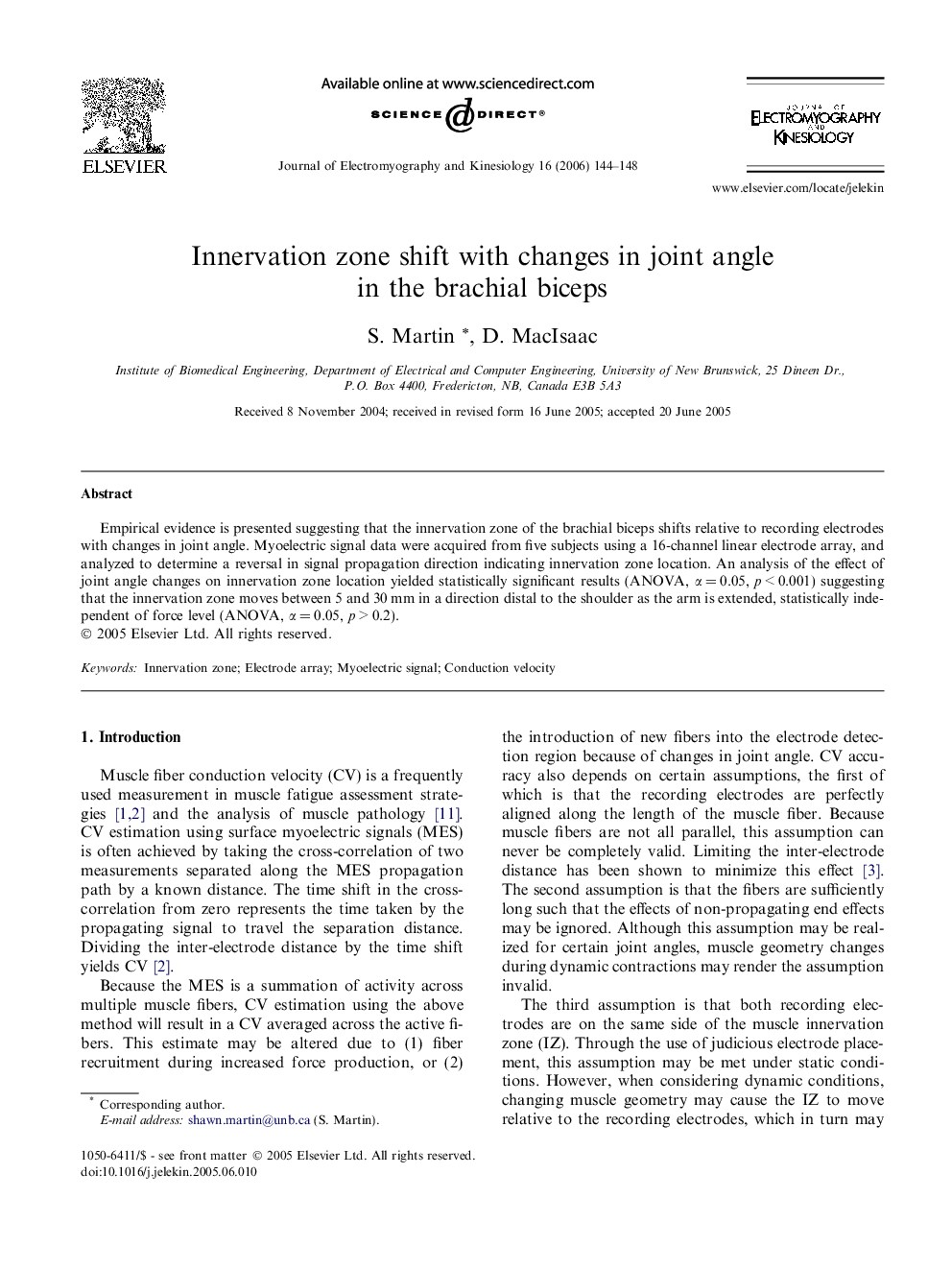| Article ID | Journal | Published Year | Pages | File Type |
|---|---|---|---|---|
| 4065668 | Journal of Electromyography and Kinesiology | 2006 | 5 Pages |
Abstract
Empirical evidence is presented suggesting that the innervation zone of the brachial biceps shifts relative to recording electrodes with changes in joint angle. Myoelectric signal data were acquired from five subjects using a 16-channel linear electrode array, and analyzed to determine a reversal in signal propagation direction indicating innervation zone location. An analysis of the effect of joint angle changes on innervation zone location yielded statistically significant results (ANOVA, α = 0.05, p < 0.001) suggesting that the innervation zone moves between 5 and 30 mm in a direction distal to the shoulder as the arm is extended, statistically independent of force level (ANOVA, α = 0.05, p > 0.2).
Related Topics
Health Sciences
Medicine and Dentistry
Orthopedics, Sports Medicine and Rehabilitation
Authors
S. Martin, D. MacIsaac,
